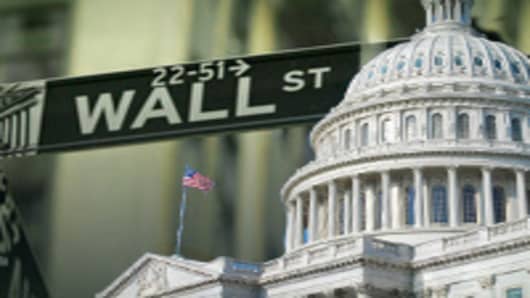More absurdity from the SEC this week.
The Wall Street Journal Reports they are now investigating what are known as Expert Networks. These are private consulting firms that specialize in providing information and expertise on particular industries and companies. Hedge funds and mutual funds hire them to get an investment edge.
The Journal highlights a company that is being probed by the SEC, which does “channel checks” with manufacturers of technology equipment for bigger companies. That kind of research gives insight into strength of order flow and can provide clues as to the direction of the industry. (Often times, they are run by, or staffed with, former employees of the companies in question. Sounds similar to the revolving door of members of congress who become lobbyists.)
This focus on ENs has lead to much discussion about where is the line between good due diligence and insider information. The question isn’t worth answering. There should be no rules against insider trading because they are akin to price controls and, by default, asymmetric in enforcement. If insiders could trade, stock prices would more likely reflect the true conditions of a company. As for asymmetric enforcement, you can prosecute when someone actually trades. But what do you do when someone refrains from a trade due to insider info? Milton Friedman convinced me there should be no rules against insider trading many years ago when I interviewed him, and his arguments still stand today. (If you want to read more about this, read my book “You Know I’m Right. More Prosperity, Less Government," and it deserves longer treatment than a web-page allows. And yes, it is bald-faced promotion)
But to simplify—why on earth would we want less information to flow, rather than more? Are we to be an investing community that relies solely on corporate press-releases? Think of how horrendous that would be.
The response I often get is that it is “unfair” for one investor to have more information than another investor—that the average individual investor will be at a disadvantage. By that logic, maybe we should prohibit investing in any company with any news for a full 24 hours after the news comes out? That way everyone has the opportunity to get the information and trade on it at the same time. When a company reports earnings at 4:05 P.M., most of the working world is still in the office doing their jobs.
By the “fairness” logic, we should allow enough time for everyone to get the information. The way the system works right now is that only professional investor, retirees, and people who work the night shift can trade on information the second it comes out. In the name of fairness, don’t we want everyone to be able to do so? I’m joking of course. But hopefully you get my point.
______________________________________________________
Questions? Comments? Email us atNetNet@cnbc.com
Follow NetNet on Twitter @ twitter.com/CNBCnetnet
Facebook us @ www.facebook.com/NetNetCNBC



